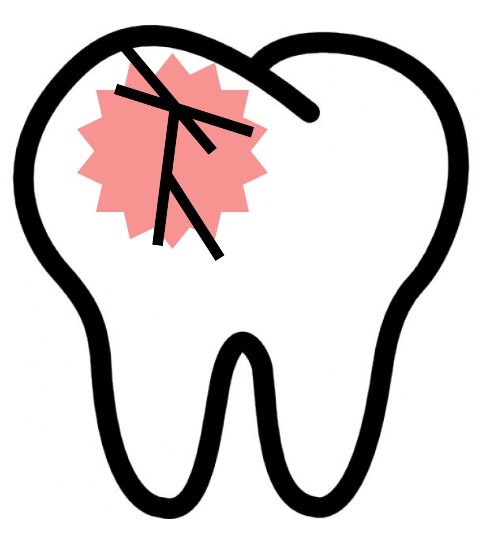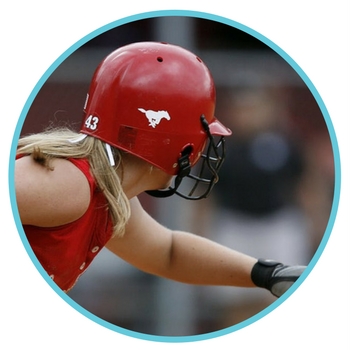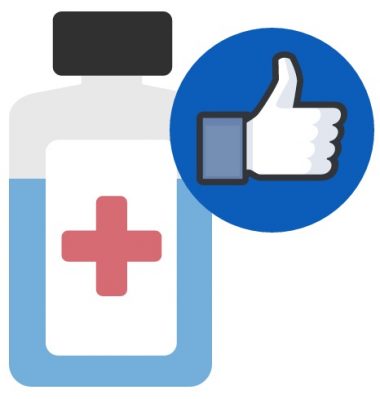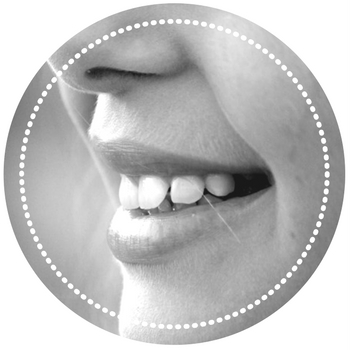Keeping Your Kid’s Teeth Safe in Sports: The Parental Guide
If you’re the parent of a child who plays soccer, football, rugby, or any other close contact sport, and you’re worried about their oral health, you’re not alone.
Unfortunately, there are a lot of injuries and instances that can damage anyone’s oral health during sports, not just children, so being prepared and taking the necessary precautions to ensure that the worst doesn’t happen is extremely important.
Approximately 50% of sports injuries are directly to the mouth, which is a scary number. The majority of these oral sports injuries require immediate emergency dental treatment for various reasons. If they are not treated, however, it could critically affect their appearance and overall oral health.
Tooth Fracture
Having a tooth fracture can happen virtually anywhere, not just in sports. However, it’s one of the most common sports injuries that affect oral health. Fracturing a tooth could occur from something as simple as falling down and landing on your jawline, for example.
Depending on how severe the fractured tooth is, it may be able to be fixed by a dentist straight away using restorative materials. However, to properly do this, immediate attention will be needed or else the tooth will continue to fracture and fall out completely, which is very painful.
Tooth Loss
If you’ve seen a professional hockey player that has had multiple teeth knocked out, chances are it was from taking pucks to the face. Tooth loss is one of the most common sports injuries that affect oral health where hockey, for example, is concerned.
Once a permanent tooth has been knocked out, immediate action is needed. If you can find the tooth you must hold it by the crown and rinse it gently under water, but do not scrub it. Make an emergency appointment with your child’s dentist and bring the tooth with you to the appointment. If the dentist feels that it can be implanted back in, he or she will do so.
However, if you can not immediately go to the dentist and must wait a day or two, keep the tooth in a cup of milk. Do not try to implant it back yourself as you may damage the tooth and the dentist will not be able to put it back. That’s when a costly implant will be required to save the bone structure of the jaw.
However, if a couple of hours go by, never mind a couple of days, there is little chance that the tooth can be successfully planted back in. After approximately 30 minutes, the change of this goes down by about 10% every 5 minutes.
Tooth Extrusion
If your child has gotten hit hard enough during sports and complains about pain their mouth, it’s possible they have a tooth extrusion. This can happen is any sport played, or even on a daily basis. The trauma caused to the oral region results in a tooth that has not yet erupted fully to partially erupt from the socket and towards the palate.
A non-rigid splint will be required should this occur in order to gently position the tooth properly again so it can erupt the way that it should. Should this occur your child will need to be pulled out of sports for awhile. The monitoring and recovery process is crucial to the life of this tooth and the pulp, so endodontic treatment may be needed.
Damage to the Soft Tissues
If an injury occurs and there is bleeding from the mouth, even if it’s only a small amount, have your child wash their mouth out using water and soap as soon as possible. If there are foreign objects or dirt in the mouth ensure that everything comes out and rinse a few more times.
If there is quite a bit of bleeding apply pressure using a wad of paper towel, gauze, a tea towel, whatever you can find on hand. However, if the bleeding does not stop after 10 minutes, immediately seek medical attention at a hospital or emergency dentist, preferably the latter of the two.
If the gums have become damaged during an injury it’s important to see a dentist straight away. If the gum damage is prolonged and made worse through further injury or regular life, such as eating crunchy foods that scrape against it, tooth loss could occur from severe damage.
Splitting of the Lips
This occurs when your child takes a hard fall and does not have enough time to brace themselves. If they hit the ground on their jaw, their teeth will close on their lip more often than not and instantly split the lip. This can also affect the tongue, as well.
There are multiple ways to prevent oral damage through a sports related injury. By taking the proper precautions to ensure that the worst cannot happen, your child can play sports as much as they want. Plus, you as the parent will not have to worry about at least one area becoming damaged.
Wear a Mouth Guard
The most obvious ways to protect your child’s oral health from sports injuries would be to have them wear a mouth guard. They are very easy to find and can be bought online or over the counter at your local drugstore. You can usually find them in sports stores, too.
While the inexpensive “boil and bite” ones are preferable and very easy to find, they are not always the best ones to choose. Typically you need to boil it in water for a few minutes and then have your child bite down with a lot of pressure to get the proper indents needed. Although, these don’t usually last very long, are uncomfortable, and don’t get the proper fit more often than not.
If you’re going to get a mouth guard for your child, you should do so properly. Your dentist can make a proper mouth guard that will be comfortable and fit them well enough.
While it’s definitely more expensive than one you’d find outside of the office, they offer a lot more protection and will not give out.
The following bullet points explain how to properly care for your child’s mouth guard:
• After it’s been used rinse it with cold water and let it air-dry
• If your child uses it on a regular basis, clean it occasionally with mouthwash or mild soapy water
• Store the mouth guard in a protective plastic container, you will get one if it’s been crafted by a dentist, to ensure heat and cold cannot damage it
• Tell your child not to chew on it and to ensure that he or she always wears it properly
• Check it regularly to ensure that it’s not tearing, cracking, or wearing down
• If the mouth guard no longer fits the way it should or your child’s bite has changed, bring it back to the dentist to have a new one made or the original altered
Properly caring for your child’s mouth guard will ensure that it will last as long as possible. Keeping it in good shape ensures that your child’s mouth will be just as safe, too.
Wear a Helmet
Football and hockey, for example, require helmets to protect not only the skull but the mouth, as well. The need for a helmet is pretty obvious, and acquiring one for your child is relatively easy.
Sport stores will carry multiple different types of helmets for each sport. You can go to one and ask about a helmet for your child. Ensure you let the sales representative there know what sport your child plays and any other relevant information. They will fit your child for the helmet that he or she needs.
Teach Them the Rules and the Risks
Nothing prevents sports injuries more than knowing the rules of the game and the risks that come along with them. Teaching your child about what could happen, where injuries are concerned, when playing the game is the best way for them to look out for a potential impact or injury.
Injuries during sports often occur because people, both children and adults, get too rough, ignore the rules, and are just in it to win it. In this case, it becomes a very dangerous game and they run the risk of getting hurt.
Steps to Take Further to Protect Their Teeth
If your child goes into a sports game with weak, vulnerable teeth, the worst is going to occur even if they take a fall that isn’t a hard one. A lot of children have lost teeth, both premature and permanent, because they are playing sports with poor oral health. Therefore, the safety of their oral health during sports starts long before they can get to the field.
“Any sport your child may participate in involves using some sort of equipment or special uniform just to participate. Make a mouth guard and a helmet part of the required equipment package.”
Having a Proper Oral Hygiene Routine
Your child should be brushing their teeth at least twice a day, flossing once, and even using mouthwash if they like it. It’s not uncommon for your child to be resilient when it comes to brushing their teeth, but you as the parent must ensure that they do so. This is especially important if your kid plays sports.
If your kid does not have proper oral health and only sees the dentist once or twice a year, you’re going to be paying multiple, costly dental bills because they have oral issues as a result of sports injuries.
There are also toothpastes that strengthen enamel and are designed specifically for children. They come in mild flavors, too. Strengthening your child’s enamel is also extremely important if they are going to be playing sports on a regular basis.
Sports aside, having strong enamel is important throughout your entire life, so start this routine as early as possible.
Sticking to the Set Routine
Do not make the routine too challenging for them, and start out slow. For example, starting out with brushing on its own is a great way to begin. Adding flossing into the mix too early or straight away will only frustrate them and make things challenging, especially if they are very young.
Start by having them brush their teeth twice a day and gradually move on to everything else. If they need some encouragement and guidance to do so then make it happen. Educate, and even scare them if need be, on the importance of having proper oral hygiene and what will happen if they don’t brush their teeth.
Practice What You Preach
Children pick up habits and other stuff by watching what their parents do. If you aren’t practicing proper oral hygiene every day, how do you expect your kids to want to do the same? By practicing what you preach, and even going through their daily oral hygiene routine with them, you will show them how important it is and that it’s a necessary part of life.
The Importance of Regular Dental Visits
Making the dentist a regular thing starts when you’re a child. Therefore, bringing your child to the dentist every 6 months is crucial to their oral health.
Even if it’s just a regular checkup or a cleaning of the teeth, getting them used to these twice a year appointments is very important.
Parents should know and realize that bringing them to the dentist for the first time when they are in their toddler years will help them to get used to it. Around the ages of 6 to 9 is when the oral health issues start, such as cavities, for example. Therefore, having them used to it before a frightening procedure, in their eyes, occurs.
Keeping Your Kid’s Teeth Safe in Sports
By knowing what can happen, equipping them with the proper safety gear, and keeping their oral health up at home between visits to the dentists, you should have very little to worry about where oral health is concerned during sports. Remember to educate your child on the matters, make things a regular routine, and let them have fun!
Resources
www.health24.com – This website includes some insightful knowledge to the more common sports related injuries and a solution. It’s helpful for parents who are looking for a place that has more information on all types of health issues and not just oral health.
www.colgate.com – This website gives helpful information on gear to protect oral health, as well as other measures that will help in this case.
www.mouthhealthykids.org – A fantastic website for parents who want to learn all they can about keeping up with and improving the oral health of their children. Has a lot of great information, tips, and more.
www.colgate.com – childrens oral care – This article has some great tips for creating and sticking to an oral health routine for kids. It also has a lot of other useful information for parents all over the website in general, considering it’s a toothpaste brand’s website.
www.webmd.com – A helpful guidance article for parents with younger children. It outlines the timeline of when you should be bringing your child to the dentist, how often, what to expect based on the age range, etc.
Relate Posts to Read:
Teeth Numbers: A Guide to Learning Your Teeth Names and Numbers
Medically Fact-Checked & Written by Our Dental Editorial Team
You can read more about our editorial guidelines by clicking this link and learn more about the Emergency Dentists USA editorial team here.








